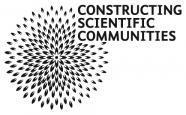Keynotes from Mind Reading: Mental Health and the Written Word
Both literature and clinical medicine deal with issues such as subjective identity, selfhood, and the social and cultural determinants of health and well-being. This is particularly brought to the fore in the complex relationships between mental illness, the patient, and the physician. At times, this may involve engagement with questions of pain, trauma, language, narrative, and expression, and the disruption and reconstitution of selves. As well as providing insight into these most basic and universal of human concerns, and the attitudes and experiences of people coping with illness or making decisions about their health, how might literature usefully inform the science and practice of clinical medicine?
Our one-day event at the dlr Lexicon Library, Dublin on Friday, 10th March, a joint collaboration between UCD Child and Adolescent Psychiatry and the Diseases of Modern Life Project based at St Anne's College, Oxford, sought to locate and to explore productive interactions between literature and mental health both historically and in the present day. We aimed to identify the roles that writing and narrative can play in medical education, patient and self-care, and/or professional development schemes, and to share our experiences of using and reading literature in the context of mental health, from a range of different perspectives and disciplines.
Bringing together psychologists, psychiatrists, GPs, service users, and historians of literature and medicine within the beautiful spaces of the dlrLexicon, we asked questions about how literature might provide a point of therapeutic engagement. We considered the use of literary techniques such as close-reading and textual analysis in medical consultations, and the methods that might be used to increase the well-being and communication skills of medical learners, healthcare providers, service users, and family members.
Our first keynote speaker, Professor James Lucey, spoke about the importance of creating a space for people to tell their stories, and the importance not only of listening to, but of re-telling those stories. Fiction, Lucey suggested, simply doesn't exist, for all stories are true:
https://www.youtube.com/embed/WM4-ltSp-qs
Our second keynote, by Professor Fergus Shanahan, explored the possibilities of 'mining medicine from literature', noting the critical difference between the objective disease and subjective experiences of illness. With reference to Proust and Joyce, Shanahan argued that literature can offer a deeper understanding of the place of medicine in society, the historical forces that have shaped it, and the challenges it will face in the future:
https://www.youtube.com/embed/WM4-ltSp-qs
In our third and final keynote Professor Sally Shuttleworth provided a historical perspective on relations between literature and mental health, and argued that literary works in the nineteenth century often furnished frameworks for new theoretical and therapeutical approaches to mental health. In effect, literature brought about a shift in how mental illness was perceived:
Podcasts of these talks are available here, and a storify of the day's events is available here.
We would like to thank all our speakers, delegates, and everyone who contributed to the discussion online and offline for helping to shape such a fascinating and thought-provoking day.
--UCD Child and Adolescent Psychiatry and the Diseases of Modern Life team



